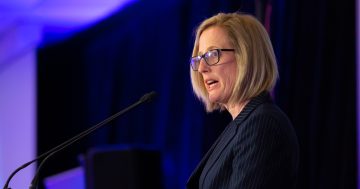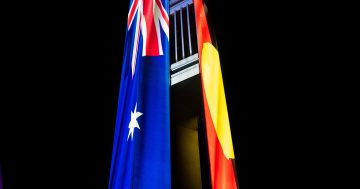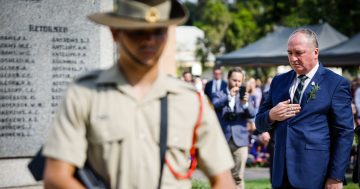
Australia Day isn’t a party for everyone. Photo: Thomas Lucraft.
When it comes to driving cultural change in Australia, public servants have more influence than many might suspect.
Sure, the public service works at the behest of the government of the day and does all it must in order to (in an apolitical manner) please its political masters and implement their agenda.
But for better or for worse, the sector also guides the discourse in many ways and has a powerful impact on outcomes.
One current cultural and political national discussion centres on the timing of our day of celebration. The day the nation stops to party. The day we call Australia Day.
Australia Day has long been celebrated on 26 January – and for just as long, it has been opposed by a significant part of the population.
For Indigenous Australians, 26 January marks a day of invasion, dispossession and longtime suffering.
Calls to change the date of the national celebration in order for it to be more inclusive and more respectful of Australia’s First Nations people have been made since before the public holiday was even gazetted.
Those calls have become stronger and the voices clearer in recent years.
It’s past overdue that those in positions of power listen and act.
Different stripes of government will approach the debate according to their own respective values and the position of their powerbases.
Scott Morrison and the Coalition went so far as to deny public servants the option to swap 26 January for another day off, whereas for most other public holidays they could change their leave.
That move was not merely playing deaf to the calls to reassign the controversial date; it was actively seeking to ensure the day was commemorated by the workforce no matter who it offended.
Since coming to office last year, Labor has revoked that directive and has allowed federal public servants to negotiate an alternative day’s leave should they so desire.
There has been little promotion of that provision however, and even less encouragement.
And actually changing the date for the Australia Day public holiday might just be too big of an ask for any government.
There are strong and considered arguments on both sides.
Or perhaps a change is closer than ever before.
It is being discussed inside the Department of Prime Minister and Cabinet right now. It’s been discussed there for some time.
In the meantime, however, it is a pretty simple thing to do to allow an employee to work on 26 January if celebrating national pride on that date is offensive to them.
And it’s the decent thing to do.
More private sector businesses are letting employees take an alternative day’s leave if 26 January offends them. Non-government organisations have been leaders in this recognition.
But it should be something that is led by the public sector, which, when it comes to being flexible with working arrangements, has always been accommodating.
An Acknowledgement of Country is now firmly embedded in the Australian Public Service.
Opening every meeting that involves anyone from the senior executive service ranks, there will be an acknowledgement of the traditional owners of the land on which that meeting is being held. Many gatherings of the lower APS ranks do the same now.
Every department has a Reconciliation Action Plan.
First Nations recruitment, mentoring and career pathways are being implemented across agencies.
Closing the Gap impacts are considered and applied to almost all policy developments.
The public sector is leading on this front and it is helping to direct the course of the national conversation.
Encouraging Indigenous employees and those workers who stand with them to swap 26 January for another day of leave can be an additional and immediate part of this move while the debate about the date continues.




















